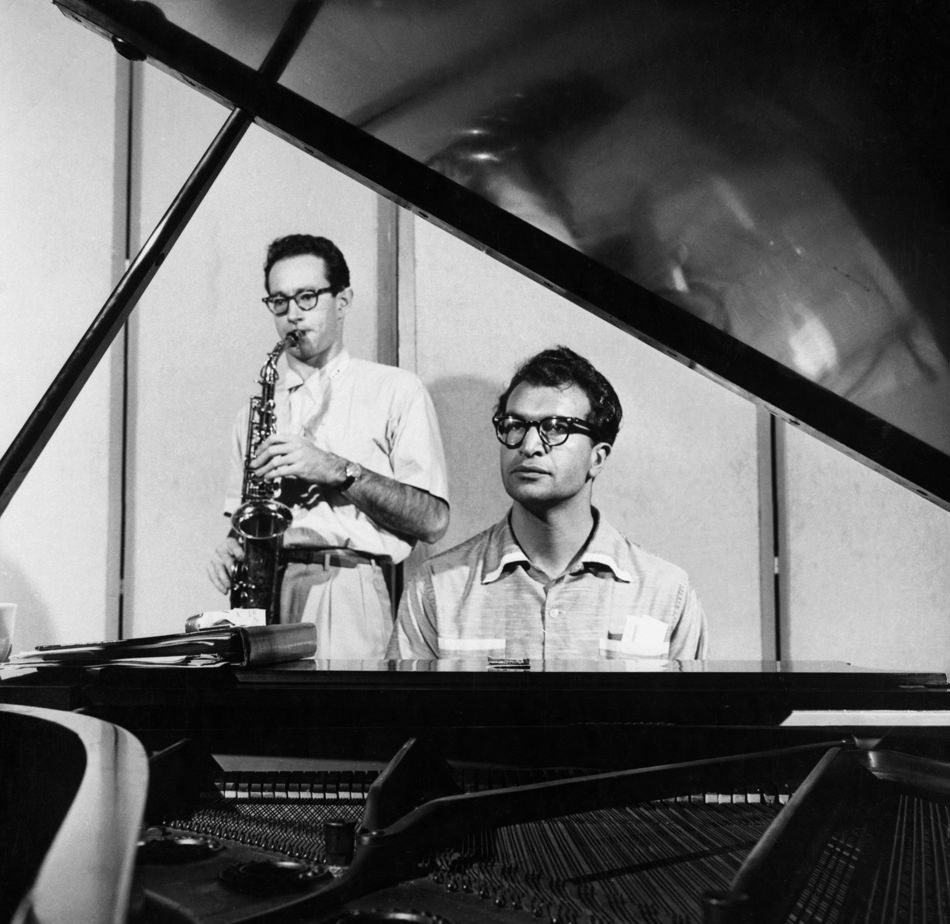In the 1960s I took brief winter vacations at the Montego Bay Racquet Club in Jamaica. You never knew who would show up. One winter Hank Greenberg, the baseball player, was there. I drove with him up a steep hill and his rented car began to stall. He said to me, “Bernstein, your father is a rabbi, why don’t you pray.” Another time Senator Javits was there. He was a better legislator than tennis player. For a while Don Budge was the club pro. I took a lesson from him. Then one winter a lanky fellow with glasses appeared. I took him for a fellow academic and when I introduced myself he said, “Paul Desmond.” I was a jazz fan but had never seen Paul Desmond in person. His song “Take Five” had become the anthem of the Dave Brubeck quartet. It has a very unusual 5/4 rhythm and Desmond’s alto saxophone solo stays in your mind forever. The tone skips along like light scattering off water.
As we were alone, we hung out a bit together. We went to a local jazz club where there were some Jamaican kids playing. Desmond couldn’t resist and asked to borrow a saxophone. The kids had no idea who he was but I explained that he was pretty good. When he began to play they were mesmerized.
During the war both Desmond and Brubeck served in army bands. Brubeck was asked to organize one, which spared him from fighting in the Battle of the Bulge. He insisted that the band be racially integrated. He had met Desmond (who had tried out for a band and was rejected) in 1944. After the war they hooked up briefly but had a falling out. Desmond had gone to New York, but then heard a Brubeck trio on the radio. He decided to seek out Brubeck in California and offer his services. It was a hard sell until Desmond offered to babysit Brubeck’s children. Eventually there were six—five boys and a girl. Their quartet began in 1951 and “Take Five” became its signature. Their sound was different from any other jazz group and was influenced by the training that Brubeck had received from people like Darius Milhaud. He named one of his boys “Darius.”
Desmond did a good deal of the composing for the group, which stayed together until 1967, when Brubeck wanted to devote himself to composition; but they reunited for several concerts. John Glismann, a former neighbor of mine in Aspen who is an ER doctor at the Aspen Valley Hospital, described meeting Brubeck as an eighth grader in Denver:
In the late sixties, Dave Brubeck and his quartet were in town to play at Red Rocks with the Denver Symphony and the Classical Choral backing them up. My mother, who sang in the Choral, was elected to pick him and his family up at the airport. My mom shows up at the house with Dave and his kids and I remember that his daughter Cathy was my age. So Brubeck walks into the dining room and immediately sits down at our piano. He flips up the lid, starts feeling out the keys, working his way up and down the keyboard in a very relaxed manner, talking and playing quietly on the piano.
He started playing as if he was going to tune the piano but was just getting a feel for action of the keys and the overall condition of the ivory. I sat there for twenty minutes listening to this guy play a form of jazz that is best described as aleatoric. I didn’t know the word until I studied music theory years later. When he stopped playing at one point I asked him what the heck it was he just put out there. He said he had no idea. I asked him to play it again and he said what he just played he never played before and would probably never play again in the same way. It was simple yet complex. It was unlike anything I’ve ever heard before.
Brubeck and Desmond were very different sorts of people. Brubeck was a sober, devoted family man while Desmond was a drinker and smoker who never formed a permanent attachment, once remarking about a woman he had dated, “There she goes, not with a wimp but a banker.” Desmond, who had been born Paul Emil Brettenfeld, died of lung cancer in 1977. His last concert with Brubeck was that year. In his will all the proceeds from “Take Five” were left to the Red Cross. For his part, Brubeck was simply unstoppable. He continued playing with his sons until this year. His musical inventiveness was all but Mozartian as was his legendary decency. He died on December 5, one day short of his ninety-second birthday.
Advertisement


